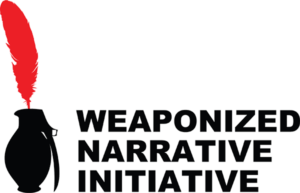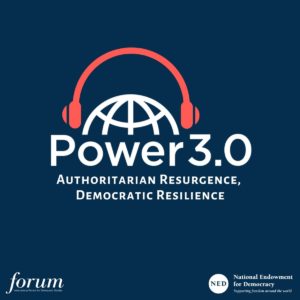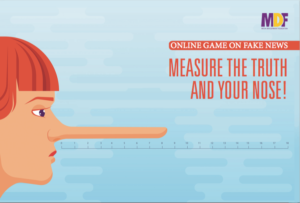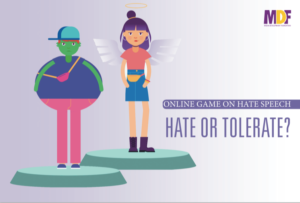Populist politics and the distorting power of digital media are creating a “toxic brew,” that is poisoning democracy, says a prominent analyst.
The “politics of resentment that we’re seeing in contemporary populism mixed with the distorting power of the digital information market” creates a “toxic brew,” Ben Scott, the Omidyar Network’s Policy and Advocacy Director told a Canadian parliamentary committee assessing social media platforms’ impact on democracy.
Social media platforms based should be regulated by a law requiring them to delete “manifestly illegal content in a timely fashion,” including hate speech, harassment and disinformation, the committee concluded in its report, “Democracy under Threat: Risks and Solutions in the Era of Disinformation and Data Monopoly”.
 Structural problems with social media platforms are responsible for the negative externalities observed in democracy, including fragmentation and the vulnerability of elections, said Taylor Owen, Assistant Professor of Digital Media and Global Affairs at the University of British Columbia. Each user is served a customized diet of information designed to reinforce and harden their views, he told the committee. This fragmentation means that “polarization and tribalism can very quickly emerge,” and it is “increasingly leading to actual physical manifestations of individual and collective violence.”
Structural problems with social media platforms are responsible for the negative externalities observed in democracy, including fragmentation and the vulnerability of elections, said Taylor Owen, Assistant Professor of Digital Media and Global Affairs at the University of British Columbia. Each user is served a customized diet of information designed to reinforce and harden their views, he told the committee. This fragmentation means that “polarization and tribalism can very quickly emerge,” and it is “increasingly leading to actual physical manifestations of individual and collective violence.”
Changes to the “legislative and regulatory landscape are needed in order to neutralize the threat that disinformation and misinformation campaigns pose to the country’s democratic process,” the committee concluded.
New Frontiers in Digital Censorship
 In the latest episode of the Power 3.0 podcast, featured guest Glenn Tiffert explores how structural and technological shifts in the global information environment—enabled by algorithms, artificial intelligence, and private sector hosting services—are creating new opportunities for authoritarian regimes such as China to censor and manipulate information at the source. Glenn also identifies opportunities that the academic community and other information users can pursue to protect the authenticity and integrity of digital information and its sources.
In the latest episode of the Power 3.0 podcast, featured guest Glenn Tiffert explores how structural and technological shifts in the global information environment—enabled by algorithms, artificial intelligence, and private sector hosting services—are creating new opportunities for authoritarian regimes such as China to censor and manipulate information at the source. Glenn also identifies opportunities that the academic community and other information users can pursue to protect the authenticity and integrity of digital information and its sources.
Glenn Tiffert is a visiting fellow at Stanford University’s Hoover Institution. Christopher Walker, the National Endowment for Democracy’s vice president for studies and analysis, and Shanthi Kalathil, senior director of NED’s International Forum for Democratic Studies, co-host the conversation.
 Georgia’s Media Development Foundation (MDF) has developed two online games on fake news and hate speech (right – HT: Tamar Kintsurashvili, MDF Executive Director).
Georgia’s Media Development Foundation (MDF) has developed two online games on fake news and hate speech (right – HT: Tamar Kintsurashvili, MDF Executive Director).
“What if Facebook made it harder for viral misinformation to spread by adding algorithmic ‘speed bumps’ that would delay the spread of a controversial post above a certain threshold until fact checkers evaluated it?” The New York Times’ Kevin Roose asks. (HT: Civic Hall).
Protecting Democracy from the Hazards of Disruptive Change
 Disruptive new technologies like social media and disinformation can have a big impact on our democratic processes, says entrepreneur and community activist Dave Troy. But this is just the latest incarnation of a larger pattern: disruptive geopolitical events, like the fall of the Soviet Union, played out in a similar way, with some of the same players. He calls (above) for a renewed era of moral leadership in Silicon Valley, and for reflection on the ethics that guide our views on capitalism, entrepreneurship, and disruption, and also offers perspective on the corrosive effects of “Fake News” on the electorate.
Disruptive new technologies like social media and disinformation can have a big impact on our democratic processes, says entrepreneur and community activist Dave Troy. But this is just the latest incarnation of a larger pattern: disruptive geopolitical events, like the fall of the Soviet Union, played out in a similar way, with some of the same players. He calls (above) for a renewed era of moral leadership in Silicon Valley, and for reflection on the ethics that guide our views on capitalism, entrepreneurship, and disruption, and also offers perspective on the corrosive effects of “Fake News” on the electorate.







